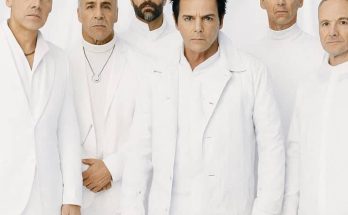If Sundays feel like a snooze and Saturdays are where ‘real football’ lives, you’re not alone. College football brings a unique brand of chaos and energy that few other sports match. First, think about the sheer atmosphere—tailgates that feel like block parties, student bodies losing their voices, bands playing fight songs loud enough to register seismic activity, spectacles that NFL venues rarely replicate. College stadiums are electric. At Tennessee, fans have reached 100 decibels, like being next to a roaring motorcycle, and at Virginia Tech they’ve even triggered seismic readingsThat’s passion manifest—raw, visceral, and unforgettable.
Unlike the polished routine of NFL games, college Saturdays are chaotic in the best way. There’s ritual in the madness: marching bands, mascots, alumni flooding in, pregame pageantry, fight songs, and halftime shows. It’s not entertainment—it’s tradition and identity all wrapped into one . The NFL may have “Fly Eagles Fly,” but college brings choreographed student sections, orchestrated chants, entire campuses turned inside out—and fans actually immersed in the scene
Emotion runs hotter in college: fans bleed their alma mater colors, recruiting legacy, regional pride. Rivalry games like Michigan–Ohio State or Army–Navy carry decades of bitterness, and the stakes feel higher. You don’t just root for your team—you lean into a community narrative). Conversations and Reddit threads echo this sentiment:
Now consider the game itself. College football is higher-scoring, faster-paced, and unpredictably wild. More plays per game, more open offenses, wider hashmarks and clock rules that favor frenetic drives—games average 175 plays versus 153 in the NFL; scoring tops 22.9 points per team in college, on average, and more explosive moments ensue The college overtime format—each team gets the ball from the 25‑yard line, multiple rounds, then mandatory two‑point attempts—makes for memorable, edge-of-your-seat finishes. The NFL’s sudden-death coin‑flip approach? Not as satisfying
Unpredictability is part of what makes Saturdays addictive. Underdogs upset giants—James Madison over VPI, Troy over LSU, fans recall these shockers for yearIn college, one bad game can derail a season; each week feels like playoff football. In the NFL, even a 7–9 team can make a run to the Super Bowl—so every game doesn’t carry the same weight
It’s also about the players themselves—raw, scrapping, trying to prove themselves—and the schemes—they’re varied, inventive, colorful. From Air Raid to read-option to trick plays, college ball is full of experiments and styles you rarely see in the NFL, where structure and predictability prevail Redditors often say:
Beyond the action and emotion, there’s community and identity. College football isn’t just a game—it’s your town, your school, your weekend. Affordable tickets, massive stadiums that dwarf NFL venues (think: The Big House, 107K+ seating vs. MetLife’s 82K), alumni networks, free or local broadcasts—it’s woven into daily life
And then there’s the ongoing shift: the college game is evolving, blending professionalism—transfer portals, NIL deals, potential super-conferences, and revenue demands—yet still retaining that Saturday emotion. The model is changing, even as the visceral appeal remains (Axios).
Still, the NFL dominates in ratings and reach—rightfully so for a polished, professional spectacle. In 2024, the NFL averaged 17.5 million viewers per game; college rivalry games like Georgia vs. Texas or Ohio State vs. Michigan garnered 12–13 million Yet, when NFL Saturday games directly competed with college bowls, the pros drew far higher numbers; but college still held strong for some marquee matchups (AP News). So while Sundays may draw more eyeballs, Saturdays deliver richer, more emotionally resonant football.
When you sum it up: college football is a full‑sensory experience. It’s rawer, louder, less polished, but more real. Players leave everything on the field for dreams and pride. Fans feel like part of a tribe. Atmosphere, unpredictability, tradition, and regional identity come together to make Saturdays irresistible. It’s not just sport—it’s communal theater.
Let’s face it—Sunday NFL can feel like a well‑executed production, but sometimes pristinely rehearsed. College Saturdays? They’re improvised jazz, played loud, fast, passionate, with everything on the line. Where else do you get 100‑decibel student sections, marching bands, bandwagon alum, and community chanting in unison? Where else does every week feel like the playoffs, and every game flip on a moment or play? Where else do underdogs beat ranked giants and cause seismic bleacher eruptions? And where else do players play with the verve of someone who still has something to prove?



